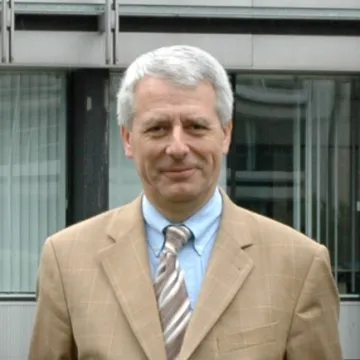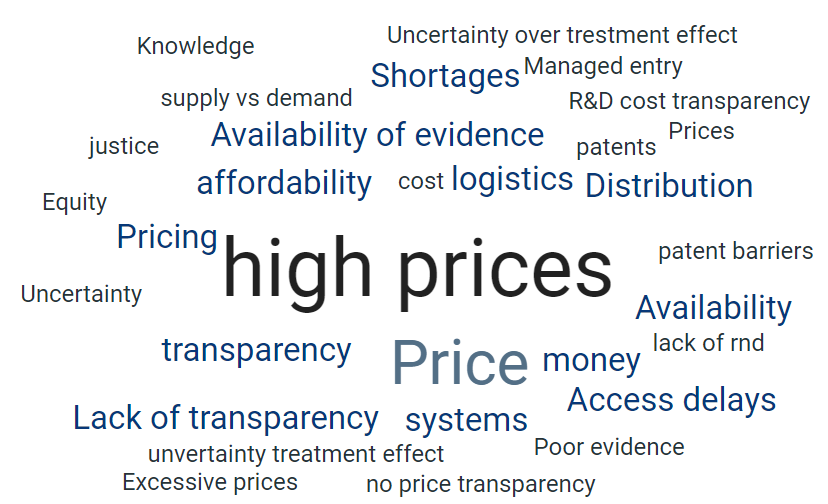GÖG-Colloquium | How has the COVID-19 pandemic impacted international initiatives to improve access to medicines?
The COVID-19 pandemic has highlighted key challenges for the provision and supply of essential medicines and laid bare the vulnerability of health systems in a global health crisis. Barriers to access include high prices, shortages, ineffective policies, and empty pipelines for new medicines. There is not only a need for rapid patient access to safe, effective, and affordable COVID-19 therapeutics, but also to medicines in further important therapeutic areas. In this context, numerous strategies have been discussed, piloted, and put in place to promote the development, production, procurement, distribution, and availability of urgently needed medicines. Tackling access to medicines as a global issue, various initiatives have been launched in recent years to pool resources, engage with stakeholders and cooperate across national borders.
The aim of the online event was to inform about initiatives in the pharmaceutical policy field, to present their objectives and activities, and to highlight the contributions of these initiatives to the management of the COVID-19 pandemic.
As an introduction Nina Zimmermann (Austrian National Public Health Institute - GÖG) asked the participants to list the key challenges with regard to access to medicines. (High) prices of medicines, availability concerns, and lack of transparency were mentioned most frequently by the participants (see screenshot below).
Pitch presentations of initiatives in the pharmaceutical policy field:
WHO Fair Pricing initiative - SLIDES
Kiusiang Tay-Teo, World Health Organization Headquarters
The high price of many essential medicines is a major barrier to the goal of universal health coverage and primary health care. WHO works with Member States and partners to promote programs and policies that make medicines affordable and accessible to all people. As part of the initiative, WHO convenes a series of Fair Pricing Forums to enable stakeholders to discuss options for a fairer pricing system of medicine. In 2021 the Third Fair Pricing Forum was held online with 850 registrants from 125 countries. Five recurring themes could be identified in the debate: transparency is essential for improving access, collaboration across countries can facilitate affordable access, there is growing interest for public sector to play a greater role, a need to clarify affordability, and a need for developing policies to ensure affordable access to medical devices and in vitro diagnostics.
WHO Oslo Medicines Initiative - SLIDES
Sarah Garner, World Health Organization Regional Office for Europe
The WHO Oslo Medicines Initiative “Better access to effective, novel, high-priced medicines – a new vision for collaboration between the public and private sectors” is an initiative of WHO/Europe, initiated together with the Norwegian Ministry of Health and Care Services and the Norwegian Medicines Agency in 2020. The Initiative provides a neutral platform for the public and private sectors and plans to reshape the political discourse by implementing pragmatic step-by-step solutions and by creating partnerships to build a movement for change. To achieve this, a mix of tools is used – e.g. engagement with stakeholders, series of webinars and technical briefings, publications, consultations and a high-level meeting in June 2022. At the Member State and non-state actor consultations and policy dialogues, the following key themes were mentioned:
- strong acknowledgement from public, private and nongovernmental organization stakeholders that the status quo in pharmaceutical innovation and novel medicines needs to change
- a narrow low-volume, high-price marketing approach for novel products is not commensurate with achieving solidarity between companies, patients, and government
- Sustainability: If the justification for high costs was R&D/manufacturing, it is reasonable to ask for transparency on those costs
Sarah also mentioned a few concrete actions that will be discussed within this initiative – e.g. demand-based R&D systems that align with social needs rather than commercial interests or cross-country collaboration and pooled procurement.
Beneluxa Initiative SLIDES Beneluxa
Jo de Cock, Former CEO of the Belgian Health Belgian National Institute of Health and Disability Insurance (INAMI-RIZIV)
Jo presented the Beneluxa Initiative as a proof of concept for a ‘coalition of the willing’: the Initiative is a voluntary cross-country collaboration of five countries (Austria, Belgium, Ireland, Luxembourg, The Netherlands). The Beneluxa initiative aims to ensure sustainable access to, and appropriate use of, medicines in the participating countries. The countries collaborate on horizon scanning, HTA, pricing and reimbursement, and they exchange experiences in the field of pharmaceutical policies. Specific outcomes of the initiative so far include the publication of joint statements (e.g. assessment of COVID-19 monoclonal antibodies, high cost SMA treatments), joint negotiations for Zolgensma (BE, NL, IE) and joint assessments (e.g. Zolgensma, Zynteglo, Orkambi, etc.). As a spin-off the International Horizon Scanning Initiative is founded where also other (European) countries take part.
Initiative “RWE4Decisions” SLIDES RWE
Jo de Cock, Former CEO of the Belgian Health Belgian National Institute of Health and Disability Insurance (INAMI-RIZIV)
RWE4Decisions: Real-World Data (RWD) collection and Real-World Evidence (RWE) generation can play a critical role in assessing the value of treatments for patients and healthcare systems, as RWD can fill evidence gaps that might exist in clinical development programmes and bring insights into effectiveness in ‘real life’ settings. RWE4Decisions is a multi-stakeholder initiative which was initiated by the Belgian Health Insurance Fund (RIZIV / INAMI) that aims to agree what RWD can be collected for highly innovative technologies – when, by whom and how – in order to generate RWE that informs decisions by healthcare systems, clinicians and patients. Within the initiative public case study workshops and events are organised and engagement with other networks (CAPR, Nordic Alliance, Beneluxa etc.) is sought. Outcomes of the workshops and discussions include, among others:
- Need for national or collaborative horizon scanning processes to identify eligible technologies for OBMEA (outcome-based managed entry agreements)
- HTA/Payers need to clarify the decision relevant uncertainties and identify key clinical questions and the data to be collected
- OBMEA should only be initiated when sufficient data can be collected to resolve decision relevant uncertainties
- Financial investment in data infrastructure, collection and analysis is necessary
Jo stressed the importance that ongoing and structured iterative dialogues among stakeholders along the life cycle of a product should be developed further and that comprehensive guidance and improvement of the standards of RWD studies is needed.
Hosting and moderation
Sabine Vogler, Austrian National Public Health Institute (GÖG)



